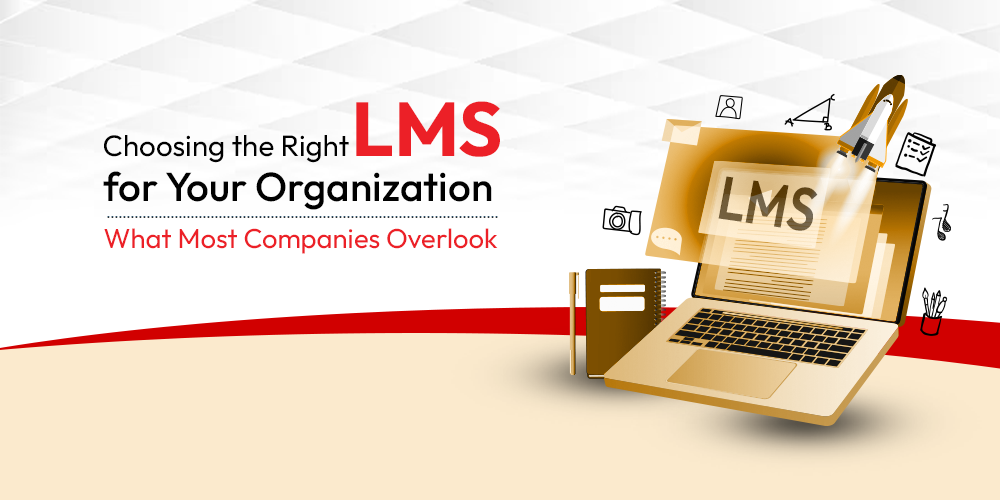
When it comes to implementing a Learning Management System (LMS), the decision goes far beyond just comparing feature checklists or pricing tables. For mid-sized companies (2000–6000 employees), the stakes are even higher. You’re not just investing in software—you’re laying the foundation for a scalable, engaging, and performance-driven learning culture.
Yet, many companies miss key considerations in their LMS evaluation journey.
Here’s what you might be overlooking—and what you should keep in mind before finalizing your choice.
1. Is Your LMS Scalable for Growth?
An LMS that works well for a team of 500 might not deliver the same performance at 5,000. As your organization grows, so will your training needs—more users, more courses, more data.
Ask yourself:
- Can the platform support multiple departments and business units?
- Does it allow easy user role management and segmentation?
- Can it handle increased load without compromising performance?
Scalability is not a nice-to-have; it’s essential for long-term success.
2. How Flexible Is Its Content Management?
Static content is one of the fastest ways to disengage learners. The best LMS platforms for corporates offer robust content flexibility—supporting formats like:
- Video modules
- Microlearning nuggets
- Interactive assessments
- Mobile-first content
Additionally, content should be easy to update and adapt based on evolving business goals or compliance changes.
3. Does It Offer Actionable Insights, Not Just Completion Rates?
Tracking who completed a module is no longer enough.
Modern L&D leaders need:
- Engagement metrics
- Skill development progress
- Learning pattern trends
- Predictive analytics to identify potential gaps
The right LMS empowers data-driven decisions for more impactful training strategies.
4. Can It Automate Repetitive Admin Tasks?
If your HR or L&D team is spending hours on manual assignments, reminders, and report generation, it’s time to rethink.
A smart LMS should automate:
- Enrollment and course assignment
- Email and push notifications
- Certification tracking
- Report scheduling
This not only improves efficiency but allows your team to focus on strategic initiatives instead of routine tasks.
5. How Robust Is Its Compliance & Audit Readiness?
For industries with regulatory needs, compliance is non-negotiable. Your LMS should offer:
- Automated certification issuance
- Audit trails and history
- Role-based access
- Regulatory alignment and real-time documentation
A compliance-ready LMS ensures your business stays on the right side of industry mandates without extra manual effort.
Ventura LMS: A Corporate Learning Platform Designed for Impact
At Ventura, we understand that every organization’s learning journey is different. That’s why Ventura LMS is built with personalization, scalability, and automation at its core.
Whether you’re rolling out onboarding programs, enabling continuous upskilling, or driving sales enablement, our platform ensures:
- Consistent learning delivery across departments
- Engaging, flexible content formats
- Real-time insights and intelligent analytics
- Automated workflows and compliance tracking
Our goal is to not just meet your training goals, but help L&D drive business performance.
Final Thoughts
Choosing the right LMS is about aligning with your present needs while being ready for future challenges. Don’t settle for a platform that only “works”—invest in one that grows, adapts, and drives outcomes with you.
